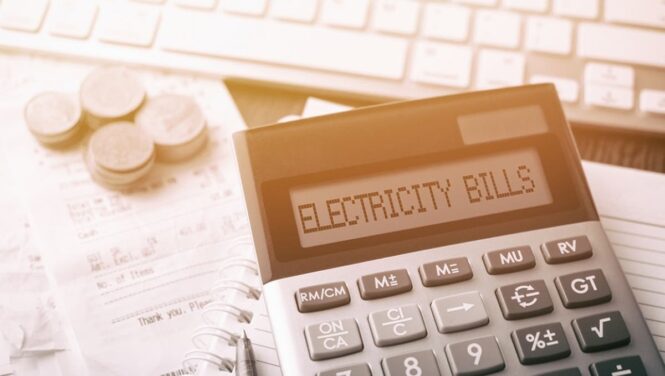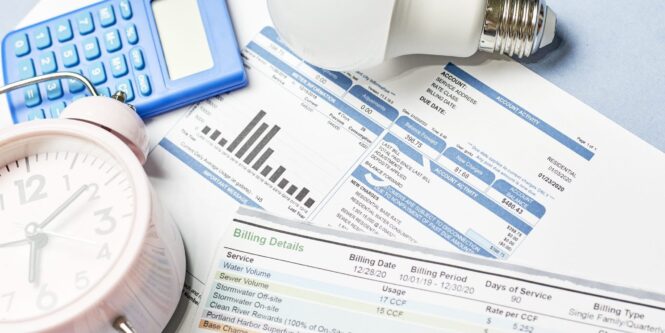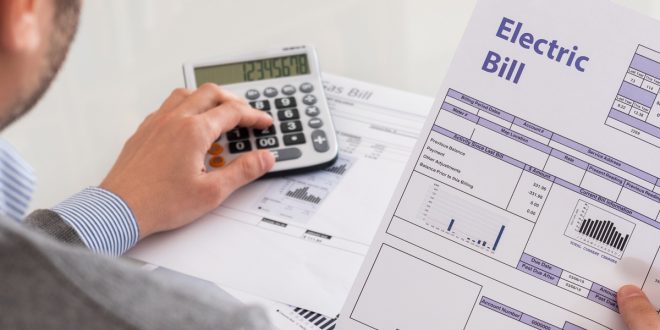Pretty much all businesses regardless of their size or what industry they operate in having some requirement for electricity. For instance, some might need it to run computers or for their lighting, whilst others need it to power high-intensity equipment and machinery. Because of this fact, an important part of running any business is staying on top of the energy contract.
Checking it regularly will ensure that a business is at the best possible rate. Any business that does not do this and allows its contract to come to an end without either arranging a new one or switching over to another supplier, is likely to be paying much more than what they need to when it comes to the electricity that it uses.
One way of establishing if a business is paying too much for electricity is by looking at the electricity bill. However, this can be pretty confusing if the business does not know what it should be looking out for.
What To Look Out For

A typical business electricity bill has lots of different information. It contains details such as who the supplier is, account number, the cost before VAT, plus much more. Whilst most businesses simply focus on the overall cost of the bill, what is actually most important is the standing charge and the individual unit cost.
The unit cost is the price that a business pays for each and every kilowatt of energy that it uses. The standing charge is the cost incurred for having the electricity supplied to the premises in the first place. This fee helps to pay for the upkeep and maintenance of the national grid. Light companies with no deposit electricity plans are a great option also for energy customers who want to avoid credit checks and upfront deposits when signing up.
What Has An Impact

The typical business electricity bill often fluctuates quite a bit and so can make things difficult for those businesses where cash flow is tight. This is especially true for start-ups.
Whilst this volatility is highly frustrating for businesses, it is not the actions of the energy suppliers who are looking to further boost their own profits. There are actually a number of different factors that impact on the price of a businesses electricity bill, including the following:
- Global Events – major events around the world, such as natural disasters, wars, or pandemics, play a huge part in why electricity prices fluctuate so much. These types of events can massively impact the level of demand for electricity, thus forcing suppliers to pay more for it.
- Generation Of Electricity – the cost of generating electricity can change several times throughout the day, due to the changing demand for it. For instance, during the core working hours of 9 am to 5 pm, the demand for electricity is at its greatest. This puts the national grid under extreme pressure, thus costing the suppliers more to meet this demand.
For those businesses that are unsure as to whether they are on a good deal or if they are overpaying for the electricity that it uses, they should visit the Utility Bidder to find the best possible business electricity deal.
Get to know your electricity bill

For getting the best deals, you should also pay attention to the details of an electricity bill. There are certain things that you will find on it. If you pay attention to the details, they will help you out in a number of ways. And you will be able to reduce your average payments.
These include:
1. Your standing charge
There is a payment that businesses have to pay irrespective of the use of electricity. This is the charge that you will pay for getting a proper supply of power and we name it Standing Charges. Though this is a separate payment it sometimes becomes a part of your unit payment.
The rate of standing charges depends upon various factors and it varies from industry to industry. For example, if you have a small business or your surrounding area is already an industrial unit, you might have a low standing charge. And if this rate becomes too low, you won’t be paying it separately. Your power supplier will include it in the unit price. So in short, you will get an expensive unit but you won’t be paying a separate standing charge. Therefore, if you are getting a different unit rate in different locations, it might be because of this.
2. Your Unit Rate
This is the price that you will pay for every unit of electricity that you use. Usually, the price of industrial units is higher than residential ones. So if you are expecting it to be the same, you are wrong.
Furthermore, the unit rate of the industrial sector is the same in a state or country unless you are getting the standing charges along. And though you might get a low-cost unit, your electricity bill can be higher because it is based upon your power usage. The unit gets expensive when your power use crosses a certain unit limit. For example, you will get a certain discount if your units remain less than 500. But if it crosses this number, the rate of initial units will increase.
But these subsidies are offered by the governments. Therefore, you need to ask your power supplying company to know about such offers. If you are just starting your business, you need such subsidies more than anything. Because you will be able to save money in this way.
3. Your contract ending date
Another important thing that you should pay attention to is the ending date of your contract with the power supplier. The unit prices are set according to a contract. You will design your budget according to different costs and the cost of power is also an essential part.
You will have a certain payment set for your next month’s bills. However, if your contract date is expiring soon, the unit price can also change in the next contract. Thus, you will need to redesign your financial plan and will go through avoidable trouble. So do pay attention to such things.
 Imagup General Magazine 2024
Imagup General Magazine 2024



